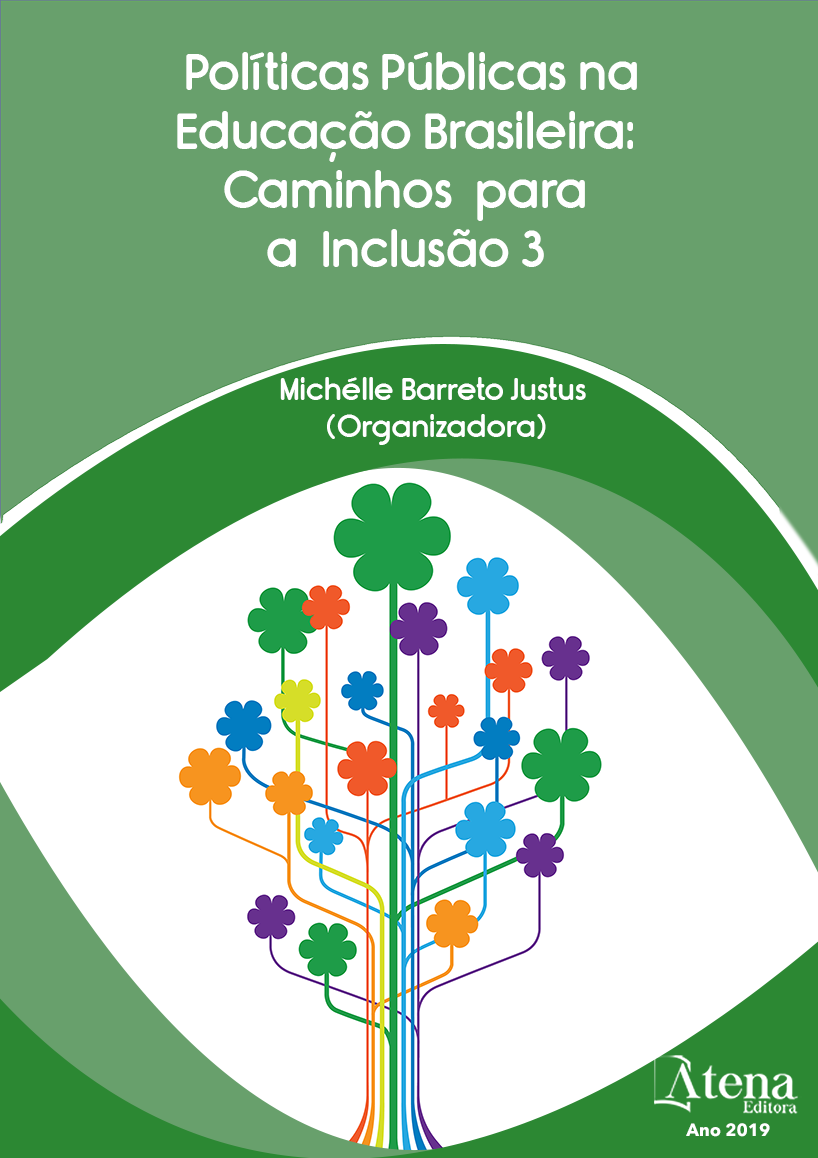
O ATENDIMENTO EDUCACIONAL ESPECIALIZADO (AEE) - DO LEGAL À MATERIALIZAÇÃO
O estudo em questão procura trazer
para o debate ora apresentado, um apanhado
de reflexões pertinentes sobre o Atendimento
Educacional Especializado (AEE), transitando
pelalegislação, estrutura, limitações,
contribuições e implicações existentes na
pauta da inclusão educacional. Para que sua
construção pudesse ser viabilizada, foram
consultados e utilizados documentos legais, que
tratam de legislação específica, na perspectiva
de subsidiar e/ou fomentar,com o devidorigor
de cientificidade que a temática requer. O AEE
tem como principal função complementar e
suplementar o processo de aprendizagem,
distanciando-se sobremaneira de uma mera
prática de reforço escolar, o que, de certa forma,
pode representar equívocos importantes dentro
desse processo. Encontra-se envolvida, nesse
contexto, a necessidade de formação adequada
(específica)dos profissionais da educação para
que o trabalho possa se tornar cada vez mais
relevante e faça sentido à real situação do
educando inserido no universo do atendimento
especializado e, ainda,na concepção de respeito
às diferenças. Desse aporte, para que se possa
alcançar o sucesso no âmbito da inclusão
educacional em uma escola que se aproxime
de um real processo de inclusão, distanciandose
da mera integração, onde tudo se mantém e
nada se transforma, a escola existente no atual
paradigma deve prever, em seu projeto político
pedagógico (PPP), suas atribuições. Deve
havercomprometimento visandoa execução
de metas, a existência de recursos humanos e
materiais, bem como almejando o atendimento
dasdemandas para a realização de um trabalho
profícuo às necessidades dos educandos
que apresentem necessidades educacionais
especializadas.
O ATENDIMENTO EDUCACIONAL ESPECIALIZADO (AEE) - DO LEGAL À MATERIALIZAÇÃO
-
DOI: 10.22533/at.ed.2531917103
-
Palavras-chave: AEE. Formação docente. Público-alvo da educação especial.Inclusão educacional.
-
Keywords: Specialized Educational Assistance. Teacher training. Target audience of special education. Educational inclusion.
-
Abstract:
This study seeks to bring to debate
a collection of pertinent reflections on Specialized
Educational Assistance (AEE), based oncurrent
legislation, structure, limitations, contributions
and implications that exist in the educational
inclusion agenda. In order to make its construction feasible, legal documents, which
deal with specific legislation, were consulted to subsidize and/or foster the theme with
the scientific rigor that it requires. The main function of the Specialized Educational
Assistance is to complement and supplement the learning process, making it far from
a mere practice of school reinforcement, which, in a way, may represent important
misunderstandings within this process. In this context, the need for adequate (specific)
training of education professionals is involved, so that work can become increasingly
relevant and make sense of the real situation of the learner inserted in the universe
of specialized care, and also in the conception of respect for differences. From this
contribution, in order to achieve success in the context of educational inclusion in a
school that approaches a real process of inclusion, distancing itself from mere integration,
where everything is maintained and nothing is transformed, the school in the current
paradigm should, in its pedagogical political project (PPP), predict its attributions. There
must be commitment to achieve the aimed goals, the existence of human and material
resources, as well as meeting the demands for the accomplishment of a kind of work
which is profitable to the needs of students with specialized educational needs.
-
Número de páginas: 15
- Maria Célia Borges
- Marlon César Silva


